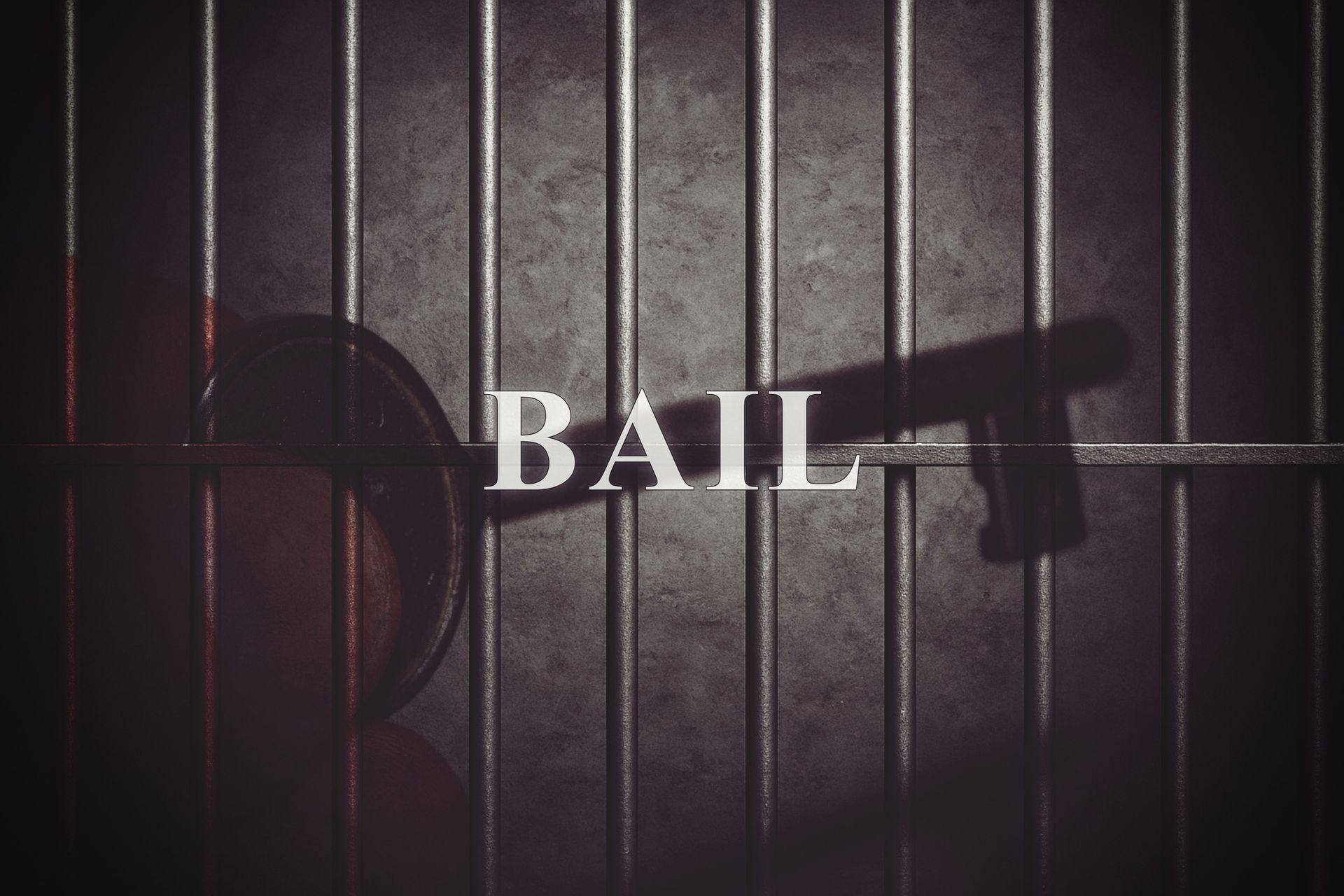A Complete Guide to Probation in Tennessee
Almost all convicted defendants receive probation in the Volunteer State. The reason has nothing to do with justice or mercy. Instead, it’s all about money. Let’s discuss some of the factors that go into receiving probation in the State of Tennessee. The state prison system costs over $500 million a year. If prison space were significantly expanded to accommodate more people, the cost might go through the roof. This points toward the importance of your local Fizer Bonding Company bail bondsman. We specialize in quickly, conveniently, and affordably getting you out of jail in Montgomery and Robertson Counties. At Pfizer, we get your tail outta jail FAST !!!!!
The community supervision system costs money as well. However, the expense is not nearly as high. Additionally, the tens of millions of dollars that officials collect in the form of fines, fees, and other payments at least partially offset these costs.
Additionally, there are liability issues to consider, at least if you are responsible for collecting the prison statistics for the State of Tennessee. Approximately one-third of prison inmates have contracted coronavirus. Trauma injuries, like falls, are common as well. These inmates almost always sue the state.
No public facility is immune to such issues. That includes meeting rooms and other facilities for the Board of Community Supervision. However, illnesses and accidents aren’t nearly as common in these buildings.
So, for better or worse, probation is an integral part of the criminal justice system in Montgomery County. All defendants go through probation orientation. However, this brief orientation session does little to prepare them for the day-to-day realities of life under court supervision.
Fizer Bonding Company, a Montgomery County bail bond company, is also a permanent fixture in the criminal justice system. We not only help people get out of jail before trial; we help them stay out of jail as the criminal justice process runs its course. Part of this help includes a preview of probation. Defendants who know what to expect are much more likely to successfully complete probation and put this experience behind them.
Criminal Offenses and Probation in Tennessee
Statistically, if you are facing criminal charges in Tennessee, you were most likely charged with DUI, assault, or drug possession. Arguably, probation benefits society more than prison in all three of these cases. That’s one reason prosecutors almost always recommend probation.
DUI is a dangerous but a non-violent offense. Almost everyone would agree that locking up people who had one too many drinks is not an effective law enforcement approach. Furthermore, thanks to innovations like the Ignition Interlock Device, DUI probation keeps the community nearly as safe as DUI incarceration.
Briefly, an IID is basically a portable Breathalyzer, paid for by the defendant, that’s attached to a vehicle’s ignition. If the driver provides a sample over a preset limit, which is usually .04, the gadget disables the ignition.
Assault is a violent offense. Nonetheless, probation is often the outcome in these cases. As outlined below, assault probation usually includes conditions that protect victims. Frequently, these conditions target the cause of violent behavior. Additionally, if people go to prison, they often come back angrier and meaner than they were before. Long-term incarceration usually causes personality changes. Sometimes, these changes are good. Sometimes, they aren’t.
A combination of these principles apply to drug possession cases. Increasingly, people see drug use as a health (including spiritual and emotional) and safety problem as opposed to a criminal law problem. Moreover, probation programs often target the causes of drug use. That’s especially true if, as is normally the case, the defendant went through a designated drug court.
Probation Basics
Technically, judges always sentence defendants to jail or prison time. However, they usually probate that sentence for a period of time. The period of probation is usually a few months in a misdemeanor and a few years in a felony.
As long as the defendant completes the conditions of probation, as outlined below, the defendant stays out of jail. If the defendant violates probation, the judge could revoke probation and impose the original incarceration sentence. More on that below.
Deferred disposition works a bit differently. During sentencing, the judge simply designates a supervision period.
If the defendant successfully completes probation, the judge dismisses the case. But a significant risk comes with this tempting reward. As mentioned, the judge doesn’t specify a jail or prison sentence. Therefore, if the defendant violates probation, the judge could sentence the defendant to any incarceration term up to the maximum prescribed by law. Ouch!
Which option is better? The answer to this question usually depends on the risk/reward as well as the defendant’s ability to complete probation.
First, let’s talk about risk/reward. A criminal conviction is a lot worse for people with no prior record. If you already have one or more stains on your permanent record, another one doesn’t matter much. The risk of deferred disposition is obviously much higher in a felony. The possible prison sentences are a lot longer.
Now, let’s talk about conditions of probation. Frankly, some people are good candidates for probation, and some people aren’t. If the defendant had issues complying with the conditions of Fizer Bonding Company – bail bond near me – probation will be even harder. Probation is longer and more laden with restrictions.
In fact, in extreme cases, a few days in jail might be better than a few months on probation. But that’s only in extreme cases.
Common Conditions of Probation
Generic conditions almost always apply to everyone, regardless of the offense they committed. These generic conditions include:
- Commit No Other Offense : This condition is the most common grounds for probation violation motions. Usually, probation officers have no discretion in this area. If a probationer picks up a new case, the matter automatically goes to prosecutors, at least in most cases. In most other cases, probationers get at least one or two warnings.
- Report to a Probation Officer : Initially, most probationers must personally check in with a supervision officer once a week, or maybe once every two weeks. Probation check-ins aren’t doctors’ appointments. Defendants cannot choose the place and time. They also cannot miss, unless they are in the hospital or in jail. At these check-ins, probationers must normally present documents, like paystubs or school report cards, which shows they are toeing the line. After a while, the meetings usually go to once a month.
- Pay Money : Judges almost always impose fines during sentencing. Sometimes, but not usually, they probate part of the fine. Moreover, probationers must pay supervision fees and other costs. If they fall behind on payments, the probation officer could file a motion to revoke. However, many judges will not grant these motions if failure to pay was the only infraction. Debtors’ prisons are illegal in the United States.
- Avoid Injurious Habits : Sometimes, this condition is difficult to enforce. Most likely, your probation officer will not see you smoke a cigarette at work. Your probation officer probably also won’t know if you go to a bar. But these enforcement problems aren’t always an issue. Most probationers must take random drug and alcohol tests. Failed tests are probably the third-most-common probation violations, behind new cases and failure to report.
- Submit to Searches : This condition is not part of all probations. But it is in most of them. When investigators look into crimes, they almost always start with people who are on probation. As a condition of probation, these people must often provide blanket consent to searches and seizures. In other words, the cops could frisk you on the street or come into your house anytime they want.
Judges usually impose offense-specific conditions as well. To discuss these conditions, let’s stick with the Big Three mentioned above.
DUI probation usually includes the aforementioned IIDs, especially if the defendant has an occupational drivers’ license. This requirement is not only embarrassing and burdensome. It’s also expensive. The IID provider charges an installation fee, monthly monitoring fees, and a de-installation fee. Guess who pays all this money. Yup, the offender!
Alcohol evaluations are common as well. These evaluations can be a bit tricky. Frequently, if a defendant says s/he does not have a problem with alcohol, the counselor believes s/he is in denial. These defendants normally get kicked out of these programs. If you have such an issue, talk to your probation officer, or better yet, talk to your lawyer.
Finally, DUI probation usually requires abstinence. Probation officers will bust defendants if they have a detectable amount of alcohol in their systems or if a property search reveals evidence of drinking.
Assault probation usually includes a keep-away order. These orders can be an issue if the defendant and alleged victim share a dwelling. Additionally, judges usually order counseling. Common ones include anger management and substance abuse counseling. Sometimes these programs help and sometimes they don’t.
Furthermore, most assault defendants, especially domestic violence defendants, go through the protective order process. In Tennessee, protective orders include more than a keep-away order. Other provisions include financial payments, like hospital bill reimbursement, and prohibition on firearms ownership.
Drug possession probation could include medical detox. Frequently, the state pays some or all of the cost in these cases.
Probation Violations
There are basically three different categories of probation violators: absconders, initial violators, and repeat violators. Courts treat them differently.
Absconders are individuals who pleaded guilty, attended probation orientation, and then disappeared. The law catches up to these people eventually. Once a judge issues an arrest warrant, that warrant never expires.
Occasionally, judges re-sentence these individuals to probation. But such sentences are rare. Most judges assume that incarceration is appropriate in these cases. And, they are usually right.
Initial violators dominate probation revocation dockets in Robertson County. No one wants these defendants to go to jail. Probation officers don’t want to admit they failed. The system doesn’t want to spend money on incarceration. And the defendants definitely don’t want to go to jail.
So, probation revocation is usually a last option. The major exception is new case revocations. Other options include modifying the conditions of probation, extending the term, or having the defendant serve a few days as a condition of reinstatement. In deferred disposition violations, proceeding to judgment is an additional option.
Instead of guilty or not guilty, the court determines if the allegations in the motion are true or untrue. Normally, the matter is straightforward. The defendant skipped a meeting or s/he did not.
Things get a bit complicated in possession-related revocations. The burden of proof is only a preponderance of the evidence (more likely than not).
Assume Sam cannot possess illegal drugs per the terms of his probation. He tests positive for marijuana.
That evidence would most likely not hold up in criminal court. The burden of proof is beyond a reasonable doubt. Sam could have inhaled marijuana smoke at a party. Additionally, there’s no evidence as to knowledge and control, which are the other two elements of drug possession. However, it is more likely than not that he possessed marijuana, based solely on that evidence.
Early Discharge
Oppressive conditions of probation getting you down? Early discharge under Tenn. Code Ann. 40-35-40(c) may be an option. This law gives a judge almost unlimited discretion to “reduce or modify the sentence” at any time.
Most judges have some additional informal rules. Usually, all fines and restitution must be completely paid. All program conditions, like anger management or alcohol counseling, must be complete. In most cases, defendants must have served at least half the term.
The broad law is a two-edged sword. Judges can grant these motions almost at will. They can also reject them almost at will.
The petitioner must probe that early discharge is in the best interests of the defendant and the best interests of society. As for best interests, perhaps the defendant wants to move, is having trouble getting a job, or s/he is rehabilitated. If the defendant has completed most of the conditions, such as the self-improvement classes, there’s no point in continuing him/her on probation at taxpayer’s expense.
Sometimes, the judge allows these defendants to withdraw their guilty pleas. That withdrawal effectively removes the criminal conviction from the defendant’s permanent record.
Fizer Bonding Company helps anyone arrested get out of jail fast. It is our way of helping everyone make the best of their life situation and have the best opportunity for a successful future! We get your tail outta jail and your success is our success! For more information about our bail bonds in the criminal justice system, contact the Clarksville, TN bail bonds professionals at Fizer Bonding Company. We are a family owned and operated bail bonds company with over 30 years of experience and offer fast, courteous and 24/7 service! More value added FREE information can be found in our online articles. Fizer Bonding Company is a proud member of the Tennessee Association of Professional Bail Agents.
“We’ll get your tail outta jail!”
Fizer Bonding Company in Montgomery County Tennessee
Fizer Bonding Company in Robertson County Tennessee
**Disclaimer**
Be advised that www.fizerbailbonds.com or Fizer Bonding Company LLC is not an attorney or law firm and does not provide legal advice. If you are seeking legal advice consult with a competent attorney in your jurisdiction. www.fizerbailbonds.com provides information only and the site may include inaccuracies or typographical errors. No guarantees are made and the use of the website, content, and any information provided is at your own risk.
The post A Complete Guide to Probation in Tennessee appeared first on Fizer Bail Bonds.











